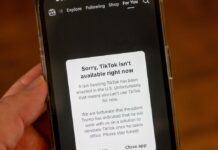The company is also taking specific actions to target pages and groups where such claims flourish, including removing them if they repeatedly break the rules.
Facebook said in a blog post announcing the changes that supporting public health officials in distributing vaccinations is a key focus for the company in 2021. “Building trust and confidence in these vaccines is critical,” wrote Kang-Xing Jin, Facebook’s head of health.
The company is under intense pressure to ensure misinformation doesn’t thwart efforts to end the pandemic.
“This is a step in the right direction, but they must do much, much more to stop the spread of misinformation,” Sen. Amy Klobuchar (D-Minn.) told The Technology 202. “That should start with strong enforcement of misinformation policies, and as tactics continue to evolve, social media companies must adapt and readily update policies to protect their users.”
Klobuchar and other Democratic lawmakers have sent letters to large social media companies demanding more transparency about their efforts to address health misinformation.
Facebook’s broad crackdown on anti-vaccination content is widely seen as long overdue.
It could be much more difficult for the company to rein in such content now, after millions of people have joined groups and follow pages that push false claims about vaccinations. Experts said that the company has recently similarly struggled in its efforts to stamp out QAnon content, years after warnings that the extremist ideology was proliferating on the service.
There are risks to Facebook’s strategy of taking down misleading content about vaccines after it was allowed to flourish on the service, warned Renée DiResta, the research manager at the Stanford Internet Observatory who has studied vaccine misinformation. She said sometimes company’s announcements that they’re taking content down actually generates more curiosity about the topic and prompts people to seek that information out in other places.
“It turns the misleading claim into forbidden knowledge, thereby actually having a bit of a backfire effect and making it more appealing,” DiResta said.
She said that happened earlier in the pandemic when the companies removed a viral “Plandemic” video that spread falsehoods about the coronavirus. DiResta said as the company is implementing this new policy, it will be essential to fill the void of misinformation that is being taken down with other authoritative sources.
People who question vaccines may not trust international or national institutions such as the World Health Organization, but DiResta said the company could do more to elevate local health officials and hospitals providing reliable information about the vaccines. She said Twitter has had success in ensuring that medical professionals providing reliable information about the pandemic have blue check marks to indicate they’re verified.
It’s also possible that anti-vaccination communities may try to adjust the language that they’re using to evade the narrow rules that Facebook put out.
“People will always try to find the ways around the rules on social media,” DiResta said. “They change the rules and then the adversary finds a way around it.”
Facebook previously “downranked,” or limited the visibility, of health misinformation in people’s News Feeds. DiResta said when that change took effect, people spreading such content began avoiding using words such as “vaccine” to avoid Facebook’s efforts.
Facebook indicated that this change was a response to decisions from its newly formed Oversight Board.
Facebook recently launched an independent body that is intended to act as a Supreme Court and weigh in on some of the thorniest content moderation questions on the platform. But to date it’s been unclear how much power that institution – which is taking on highly controversial cases like whether former President Trump should permanently be banned – will have over broad policies.
These moves are an early sign that the board’s decisions could have a major impact at Facebook, after Zuckerberg and other executives have defended the company’s hands-off approach to misinformation for years.
In a recent ruling, the board had criticized Facebook’s policies on coronavirus misinformation. “A patchwork of policies found on different parts of Facebook’s website make it difficult for users to understand what content is prohibited,” the board wrote.
The company also announced a series of other steps to promote vaccine confidence.
- Help people find information about where and when they can get vaccination appointments, much like its efforts to share data about polling locations during elections
- Donate $120 million credits to allow health ministries, NGOs and U.N. agencies to advertise about the vaccine and other public health programming
- Assist researchers in gathering data that inform effective vaccine delivery and educational efforts to address vaccine hesitancy
Our top tabs
A House committee demands answers on whether Trump was offered a stake in Parler.
The House Oversight and Reform Committee also asked Parler executives about the social network’s ownership and business relationships that Parler may have with “any Russian individual or entity,” Tom Hamburger and Craig Timberg report. It has been a tumultuous month for Parler, which has struggled to return to full operations since the Jan. 6 Capitol attack and is facing intense scrutiny in Washington.
“Since the attacks, numerous Parler users have been arrested and charged for their roles, with the Department of Justice citing in several instances the threats that individuals made through Parler in the days leading up to and following the attack,” the committee’s chairwoman, Rep. Carolyn B. Maloney (D-N.Y.), said in a statement. “Individuals with ties to the January 6 assault should not — and must not — be allowed to hide behind the veil of anonymity provided by shell companies.”
Maloney last month asked the FBI to investigate the app, and questions about the app are only mounting following a BuzzFeed News report on negotiations between the app and Trump over the possibility of his taking an ownership stake in the company. Parler is also using a Russian-owned Web services company after Amazon and other Internet infrastructure providers dropped it last month.
A key program that helps Americans pay their phone bills failed during the pandemic.
An estimated 33 million low income U.S. households are eligible for assistance under a program known as Lifeline – but it’s failing when they need it most following years of government mismanagement and neglect, Tony Romm reports.
Families who rely on Lifeline say they have struggled to talk to their doctors, employers and loved ones throughout the pandemic. Many Lifeline subscribers have service that would be unrecognizable to most app-using, smartphone users with large data plans, Tony found through dozens of interviews.
It’s so bad that only 1 in 4 of eligible Americans actually takes advantage of it, according to U.S. government estimates prepared in October.But attempts to improve the program have faltered in recent years, and the Trump administration thwarted plans to evolve the program so that it would have been more useful in helping people obtain home broadband — which could have been key amid stay-at-home orders.
“People are ordering their groceries, they’re learning, they’re talking to the doctor, they’re scheduling vaccine appointments — everything is being done on the Internet,” Rep. Mike Doyle (D-Pa.), who leads a key telecom-focused committee in the House, told Tony. “To say that a certain percentage of our population is not able to do these things in this day and age is not morally right, it’s not fair, and it is has to be dealt with.”
Lawmaker introduces bill to expand rights for confidentiality agreement-bound California workers.
A new bill in California would protect workers against nondisclosure agreements and other confidentiality settlements and empower them to speak out on discrimination, Paulina Villegas reports. Former Pinterest employees who alleged discrimination at the company, including Ifeoma Ozoma, were a driving force behind the bill.
If passed, the legislation would have a significant impact in the tech industry given the large number of companies headquartered in Silicon Valley. The bill would expand protections against secret settlements beyond sex-based discrimination. All forms of harassment or discrimination under California law — including race, ancestry, religion, gender identity and others — would be covered under the legislation.
Hedge funds profited off GameStop’s Wall Street rally.
Hedge funds that monitor social media traded millions of shares in the company’s stock, Douglas MacMillan and Yeganeh Torbati report. The findings cast doubt on claims that the GameStop rally was a populist victory benefiting small investors.
The world’s four largest asset managers together own 39 percent of shares in the retail chain, which has seen a massive rise — and fall — in stock price. Those four asset managers’ stakes gained about $1 billion in value since the beginning of the year, with one hedge fund bragging that it made $700 million off a September bet on the company.
The impact of social media on market volatility has concerned top financial regulators, which are combing through the networks to look for signs of manipulation.
Rant and rave
Happy nerdy Valentine week!








